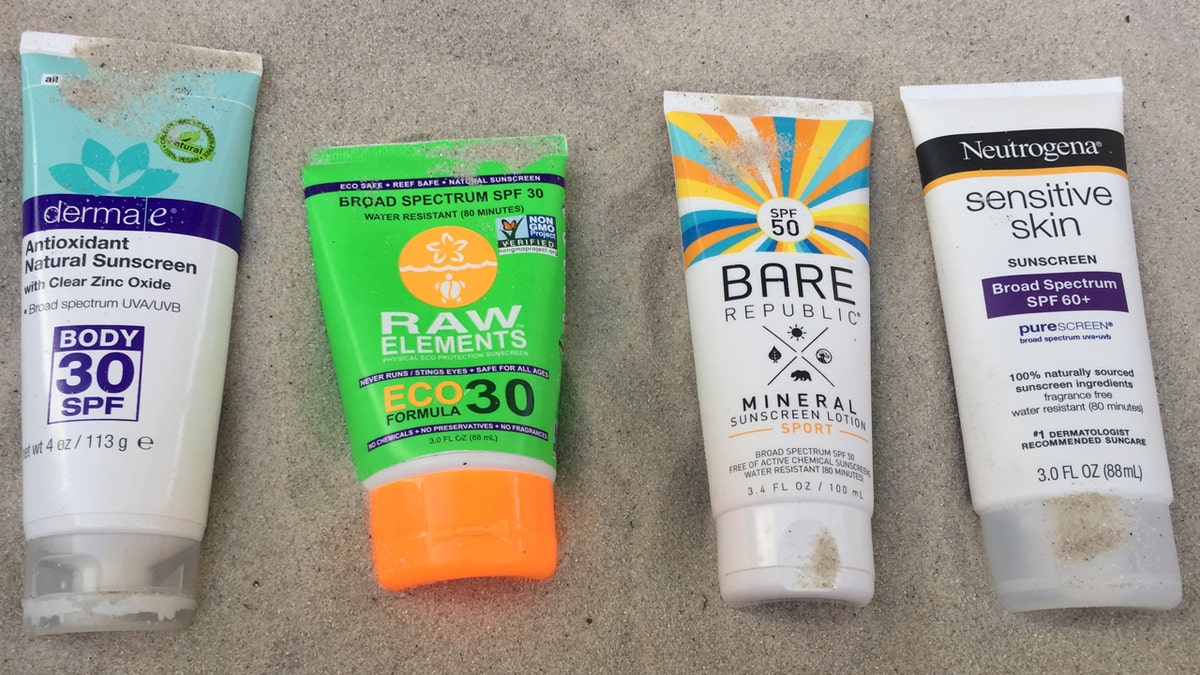
Do natural sunscreens work as well as chemical ones? (Sarah Myers)
The dog days of summer are upon us. Many people will be spending more time outdoors, and with substantially less clothing. Protection against a stronger blast of UV rays is more important than ever. As a sun worshipper myself, I have come to appreciate sunscreen even more as the signs of sun exposure have started to show.
There are two types of sunscreens available on the market. They are known as "chemical" and "physical,” or mineral sunblock. Mineral sunscreens typically contain titanium dioxide or zinc, or a combination of both. Many of the active ingredients in chemical sunscreens include oxybenzone, avobenzone, octisalate, octocrylene, homosalate and octinoxate.
ARE YOU WEARING SUNSCREEN WRONG?
While the conventional chemical barrier may seem like the best choice due to its availability and price point, there are a few things to take into consideration when choosing what type of sun care to use.
Chemical sunscreens work by absorbing the ultra-violet radiation and the sunscreen slowly breaks down converting to heat. Some studies show this can cause skin irritation to those with skin conditions like rosacea. According to the Environmental Working Group, oxybenzone has the ability to enter the body and may cause hormone and endocrine disruption.
In addition to possible health hazards, there have been studies showing oxybenzone damaging the coral reefs. "Researchers testing the effects of sunscreen on corals explain that chemicals in sunscreen can awaken coral viruses. The coral then becomes sick and expel their life-giving algae. Without these algae, the coral 'bleaches' (turns white), and often dies."
Due to these concerns, I have turned exclusively to using physical sunscreens. These work by acting as a barrier on the skin and reflecting the sun's rays. Mineral sun care protects against UVA and UVB rays. While many may turn your skin white or have a learning curve as to how often to reapply, I felt that the safety of the product outweighed the inconveniences.
FOLLOW US ON FACEBOOK FOR MORE FOX LIFESTYLE NEWS
As always, if you have any concerns regarding sun protection, please consult your doctor. Help save your skin and the environment by diving into the world of mineral sunscreens.
I put four different ‘natural’ brands of sunscreen to the test and here's what I found out.
1. Derma E Natural Mineral Sunscreen SPF 30 Body
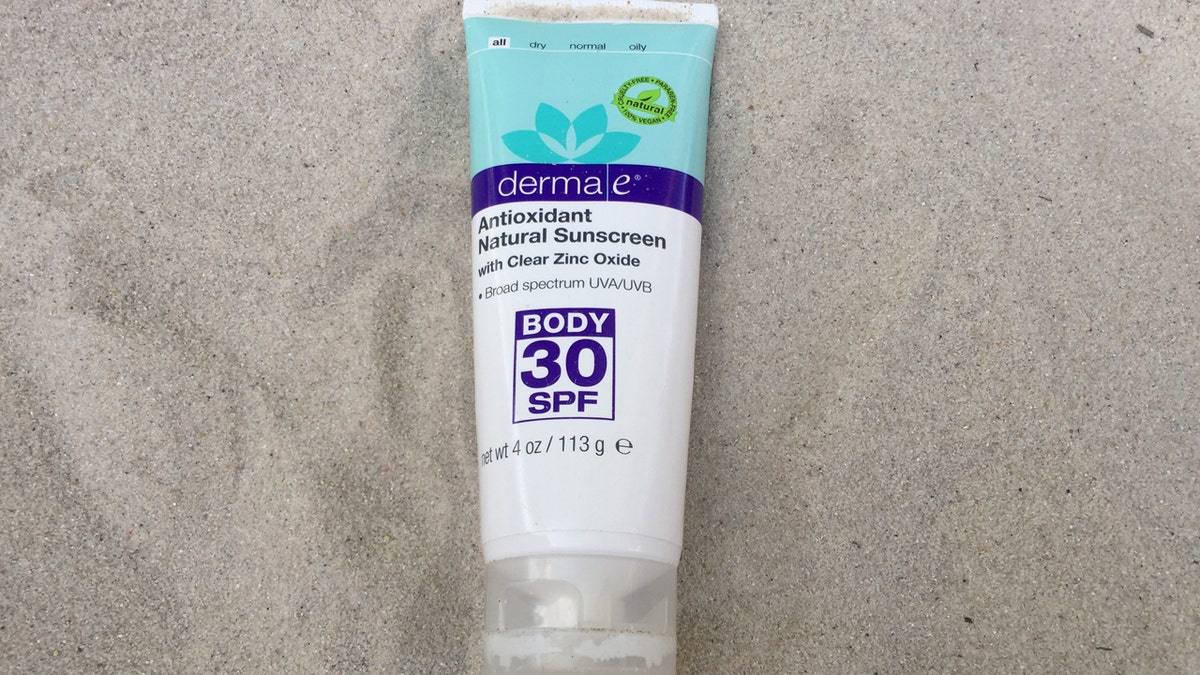
(Sarah Myers)
The active ingredient is 16 percent zinc oxide, while the newer bottles are formulated with 20 percent. It contains antioxidants like green tea leaf extract and vitamin E to help defend against aging. It is labeled as GMO-free and cruelty-free. When applied, it rubs in quickly and leaves very little residue and white cast. It has a very faint scent of coconuts. The label recommends to reapply at least every two hours. However, I felt it washed off easily in water, so from experience it needs to be applied after swimming or excessive sweating. This is my top pick due to the lightweight feel.
Derma E Natural Mineral Sunscreen SPF 30 Body, $19.75; at Derma E
2. Raw Elements Eco Formula 30+ Lotion Tube
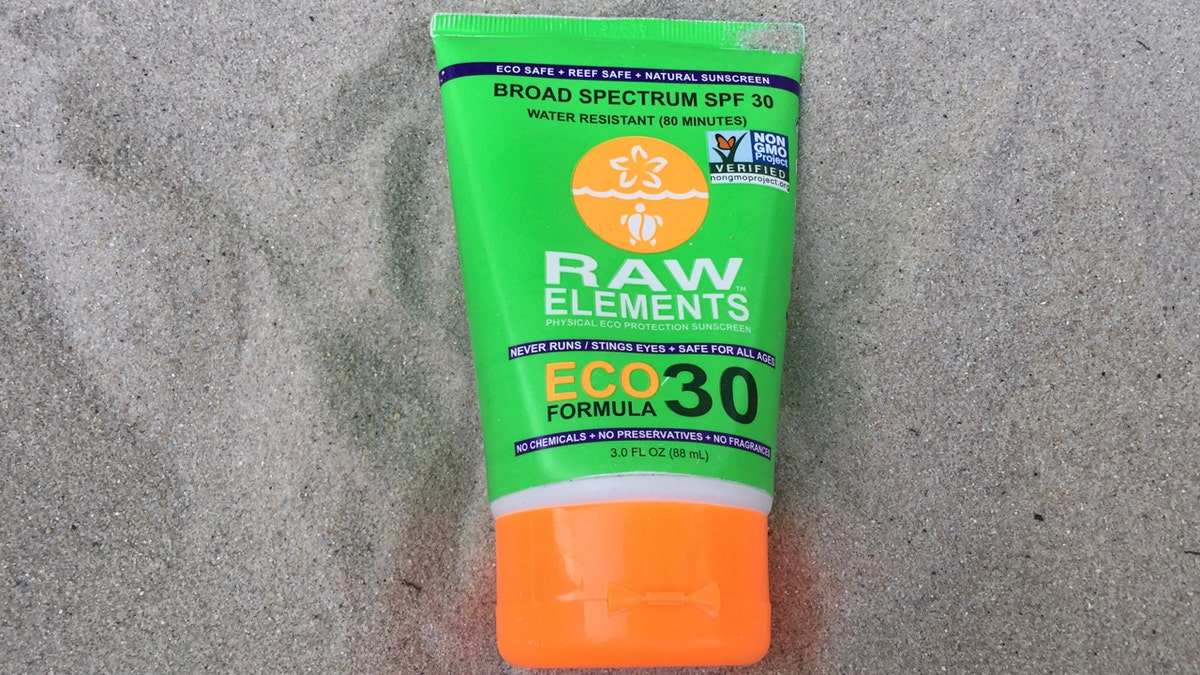
(Sarah Myers)
The active ingredient is 23 percent zinc oxide. It contains multiple moisturizers, like organic hemp seed oil, organic sunflower oil, mango butter and cocoa butter. Organic extracts like green tea, black tea and coffee bean help protect skin. It is a verified non-GMO product, labeled reef and eco safe. This is the thickest of the four and was difficult to rub in. It leaves a white hue on the skin and has a greasy feel. I did notice it had an earthy smell. According to the label there are no added fragrances which is ideal for those with sensitive skin. The benefit to its consistency is that it stays on well in water (it’s labeled water resistant up to 80 minutes). I would have to rate this sunscreen as my second pick and best for days when I plan to spend much of my time in the water. For those who prefer to sunbathe on a beach, beware it can become a sand magnet due to its consistency.
Raw Elements Eco Formula 30+ Lotion Tube, $18.99; at Raw Elements
3. Bare Republic Mineral SPF 50 Sport Sunscreen Lotion
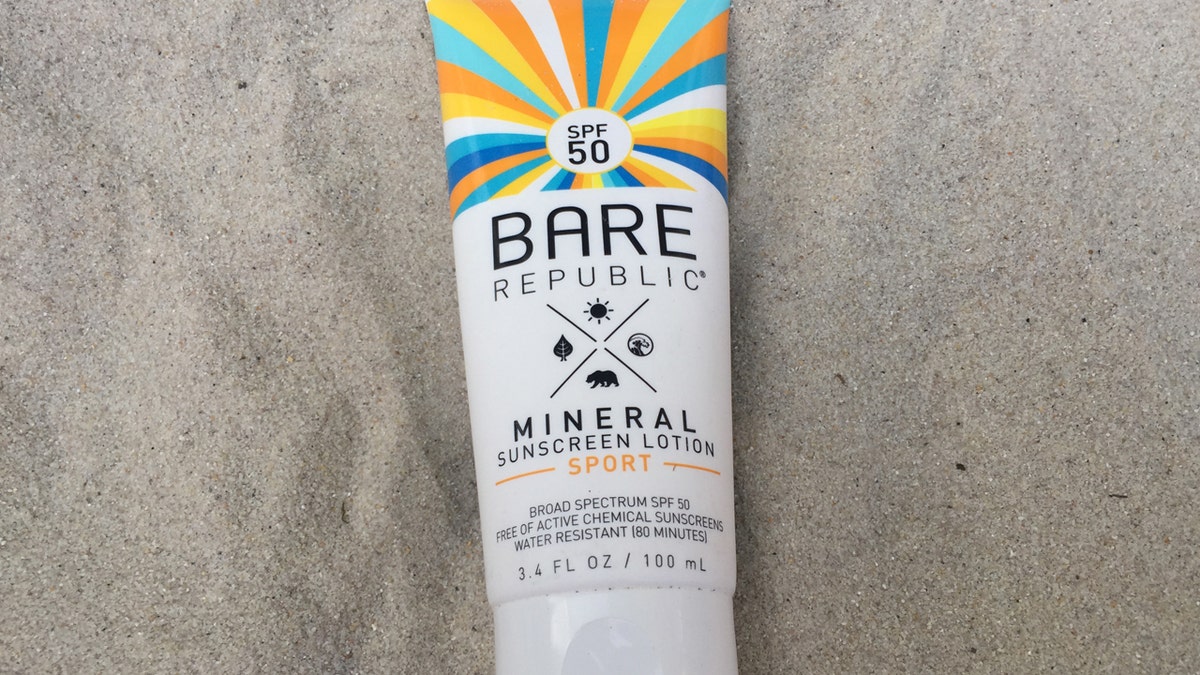
(Sarah Myers)
The active ingredients are 5.6 percent titanium dioxide and 3.7 percent zinc oxide. The sunscreen is formulated with Kukui nut oil and according to Bare Republic, it "is used to moisturize and protect the skin from sun, salt, wind and other environmental elements". It comes out of the bottle thick and takes some effort to rub in, but once rubbed in leaves just a slight white tint on the skin. It has a light tropical type scent which they call "natural coconut vanilla". It advises to "Apply liberally 15 minutes before sun exposure. Reapply after 80 minutes of swimming or sweating, immediately after towel drying, and at least every 2 hours." However I have noticed it can come off after swimming for a shorter period of time than advised. I would rate this third because, although it smells delicious and shields me from the sun, it does leave a residue. It also doesn’t seem swimmer friendly.
Bare Republic Mineral SPF 50 Sport Sunscreen Lotion, $14.99; at Bare Republic
4. Neutrogena Sensitive Skin Sunscreen Broad Spectrum SPF 60+
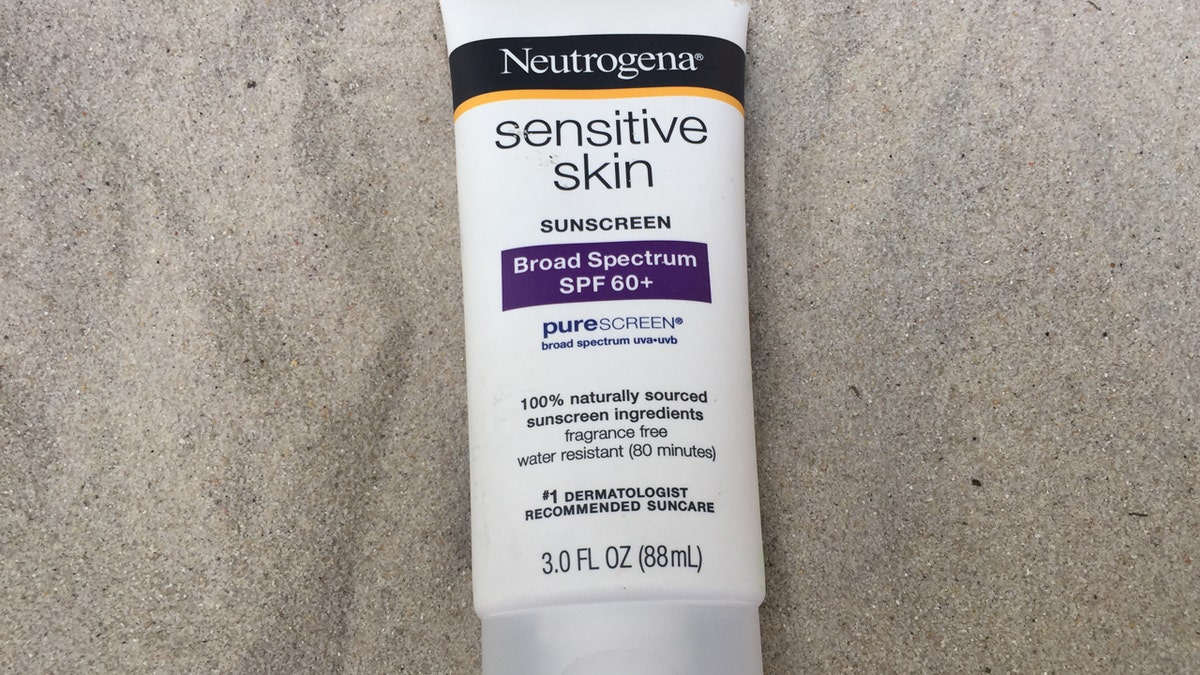
(Sarah Myers)
The active ingredients are 4.9 percent titanium dioxide and 4.7 percent zinc oxide. While this is not as natural and certainly does not contain as many beneficial skincare ingredients as the other three listed, it still is a mineral sunscreen and is more widely available in stores compared to the others I tested. I felt it was important to include this for those who are in a pinch and may not have time to order sunscreen online. It rubbed in easily but left a slightly sticky residue on the skin. It claims to have 80 minutes of water resistance but I noticed it coming off in the water. According to the label it is the number one dermatologist recommended sun care brand. It is labeled fragrance free but to me smelled similar to plastic. Due to the lack of nourishing inactive ingredients, smell and film left on the skin, I would rate this as my least favorite of the four I tried. If you don’t have access to the other brands, it is still a mineral sun care lotion and will protect you from UVA and UVB rays.
Neutrogena Sensitive Skin Sunscreen Broad Spectrum SPF 60+, $8.99; at Target








































